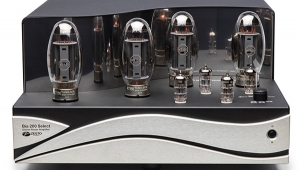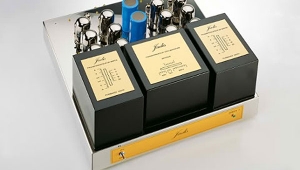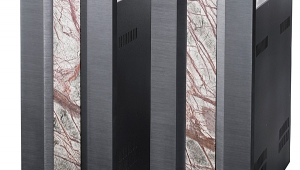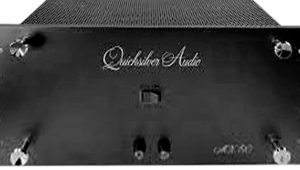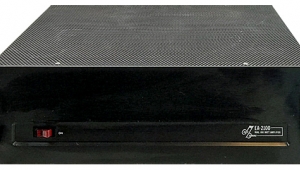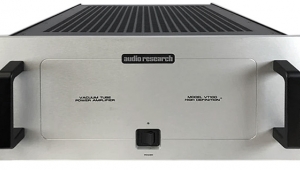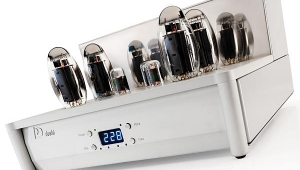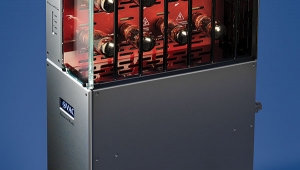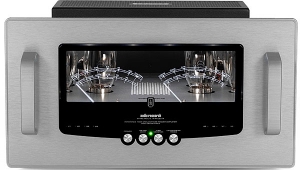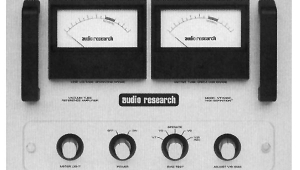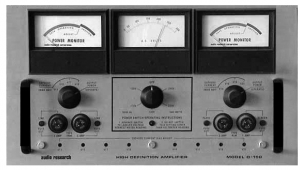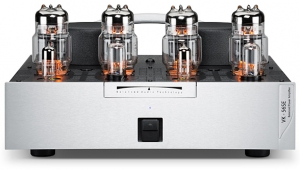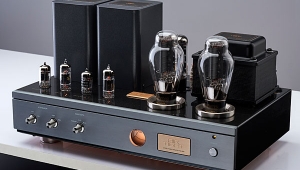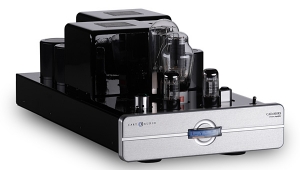| Columns Retired Columns & Blogs |
Conrad-Johnson MV60 power amplifier Page 3
Conrad-Johnson recommends replacing the eight tubes every two or three years, and suggests you buy the tubes from them—they're tested. Retubing the MV60 with tubes from C-J costs $168 (at current prices). That's an upkeep expense you don't have with transistor amplifiers, of course. Then again, do you like frozen meat?
Being a reviewer, I don't hold on to most amplifiers long enough to have to retube them. I'd guess, though, that you could get four or even five years' use from the EL34 output tubes, and even more from the input and driver tubes. That's if you turn off the amp when you're not listening. True, maybe the tubes will deteriorate after two or three years—but so will you. Tube mortality is one of a tube amp's more human features.
I asked Bill Conrad why he chose the less powerful EL34 output tube over, say, the 6550, which, like the EL34, is available from Sovtek and other sources. The 6550 can pump out more power, it's the output tube Conrad-Johnson uses for its more powerful, more expensive amplifiers—the Premier Twelve monoblock, for instance, which retails for $7390/pair. Big bucks.
("Sovtek" is not a name you normally encounter in Russia, by the way. Soviet Tech? Why not Lenin Tech? "Sovtek" is a brand name owned by New Sensor Corp., of New York City. The tubes are likely made by the Reflektor factory in the Russian city of Saratov.)
"I like both the EL34 and the 6550," Bill told me. "The EL34 is a little more of the midrange freak's tube, while the 6550 has a little more authority. I tried this amplifier both ways—with EL34s and with 6550s. I have to say that, with these transformers, the difference in the sound of the two tube types is diminished somewhat."
"And you use the Sovtek EL34. You must like this tube."
"We have had very good field experience with this tube over a long period of time," said Bill. "The customer doesn't get surprises. I don't believe you want a sense of adventure before you get to your listening."
" 'Sense of adventure'?"
"Many of the other EL34s I tried were disappointing even before we got to the listening phase."
I couldn't get Bill to actually say that certain makes of EL34 tubes occasionally blow up.
"I think the Sovtek EL34 is up there with some of the historically great EL34 tubes," he continued. "There will always be someone who prefers this brand or the other, and sometimes I do, too. But the Sovtek EL34 is at least as good as the others. They're reliable and they're available today." (Conrad-Johnson has a huge supply of tubes, by the way; if you're concerned about replacement tubes, don't be.)
I tried to draw Bill out a little (it's much easier to get Tor going): "The MV55 also used Sovtek EL34s, but the MV60 sounds quite a bit different. You mentioned the transformers..."
"The MV55 was limited by the output transformers in terms of bandwidth and high-frequency power capabilities," Bill replied. "The MV60 uses the same transformers we used in the Premier Eleven A."
"And that's why it has more power than the MV55?"
"Basically, yes. Sonically, I've been able to extend the highs in a more coherent manner and get a bit faster response. This leads to a more powerful impression. It also seems we've extended the frequency response downward."
Bill pointed to a number of other improvements over the MV55—internal stuff you don't see, like upgraded resistors and capacitors and the use of high-speed, soft-recovery diodes in the circuit, and improvements in the passive components: internal wiring, better input and output jacks.
As Tor suggested, for the most part I used the MV60 with Conrad-Johnson's Premier 17LS line stage, which retails for $4495. "You don't want to limit the performance of the MV60 with the wrong line stage," Tor suggested.
- Log in or register to post comments
